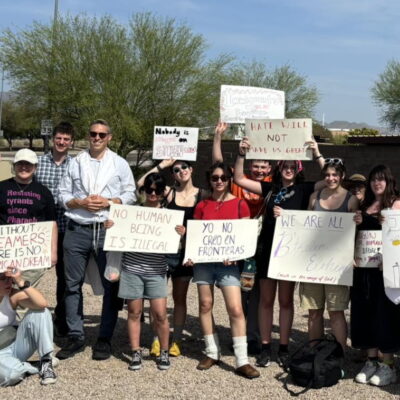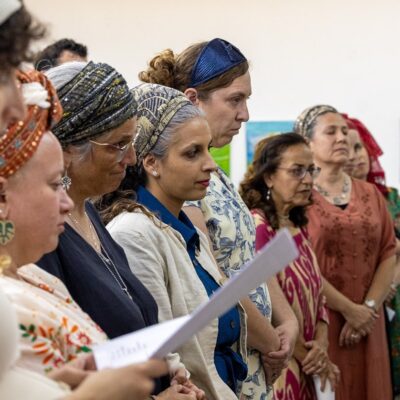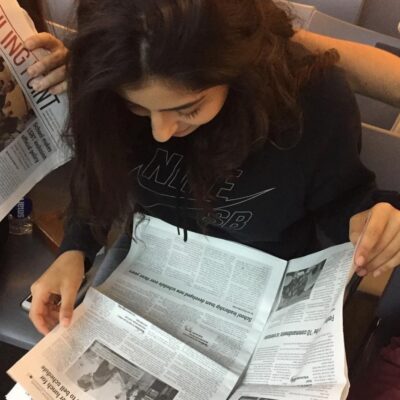The Millennial Revolution: Career, Community and Culture | Introducing the New American Jew
 By Steven Windmueller, Ph.D.
By Steven Windmueller, Ph.D.
Fourth and fifth generation Jews are making critically different career and occupational choices, just as they are articulating distinctive views on community and social activism. If their grandparent’s generation (1957) were comprised of self-employed businessmen (55.6%) and managers (14.9%), their fathers and mothers (1970) pursued careers as professionals (27.2%), including lawyers, doctors, accountants and university professors, in addition to expanding their roles as corporate managers (26.5%), Jewish Gen X’ers and Millennials are exhibiting a dramatic transition in career preferences.
As we welcome this new generation of America’s Jew, five disciplines will define their professional identity:
- Financial Investments and Banking Services
- Communications and Public Relations
- Technology Sector
- Research and Development
- Start-Up Entrepreneurs
Data also suggests that this new generational cohort represents a highly diversified cohort of Jewish investors, inventors and investigators (seeking to bring new ideas to the public square).
When defining their distinctive work-style behavior, “Millennials care about things like work-life balance, sometimes even more than salary. They also care about collaborative, creative effort and often, about trying to effect social change.”
Millennials and the Idea of Community:
“Community” must be understood as a core value for Millennials. But their definition of “community” is also quite different from their parents’ perspective. In fact, for this generation the idea of community is integral to their lives, as they seek to blend their private and professional worlds. This is a generation that has a holistic view of their lives. Yet, this is not a monolithic group, as Millennials hold multiple identities and embrace an array of universal values. While it is a generation that rejects old structural frameworks, the idea of Jewish collectivity as expressed through social activism and Tikun Olam resonates with them. The search for meaning seems to be the central factor in defining Millennials’ personal and professional identities.
Other Generational Observations:
Collectively, “Millennials and Gen Z will soon represent half of the workforce, so change is the new norm.” Yet, this younger generation faces significant challenges:
“Finding and keeping a job or maintaining healthy relationships is stressful enough… But with the omnipresence of social media influencing culture, attitudes, values and behavior patterns, young people today experience unprecedented mental and physical stress.”
In connection with this emerging generation other key career and professional trends include:
They are digital natives; they’ve grown up in a world full of technology. Older millennials were just entering their adolescent years when the internet and cellular phones became widespread, and younger millennials know nothing of life in a world that lacks these elements.
They are global citizens in the sense that they feel connected to issues around the world. The instant and broad connectivity of the internet and constant exposure to social movements have made this commonplace.
They tend to be progressive in the sense that they’re always looking to move forward and seize new opportunities. When new technologies come along, they aren’t hesitant to adapt.
They are diverse. This is America’s most racially diverse group ever, which has allowed this generation to face and address many issues that previous generations struggled with.
Younger Americans were much more likely to say that their top priority was doing something that they found enjoyable or making a difference in society, with 57 percent choosing one of these options. Younger respondents, however, were significantly keener on the idea of owning their own businesses, with nearly one-third ranking this option as the best employment scenario. 49 percent saying that they expected to move from company to company rather than staying put.
Respondents of all ages thought that technology, healthcare, and energy production were the areas most likely to produce an abundance of new jobs over the next 10 years.
Closing Observations:
As this new generation asserts its presence on the public stage, the character of the Jewish future will no doubt reflect the imprint of the Millennials. There is already evidence of significant pockets of wealth creation in connection with millennial entrepreneurs. Yet, the larger impact that this generational cohort is likely to produce will involve the reshaping of philanthropic, political and religious patterns of participation, driven by their life-style choices and their distinctive social values orientation. In relationship to the global forces that will drive 21st century economic behavior, it is evident that Jewish Millennials will be joining their generational partners in taking advantage of worldwide business opportunities and participating in international social causes, leading to an expanded global Jewish Diaspora.
The emergence of Jewish Millennials will exhibit many of the characteristics of their generation, yet still portraying certain distinctive Jewish values and social behaviors
Steven Windmueller, Ph.D. on behalf of the Wind Group, Consulting for the Jewish Future.













